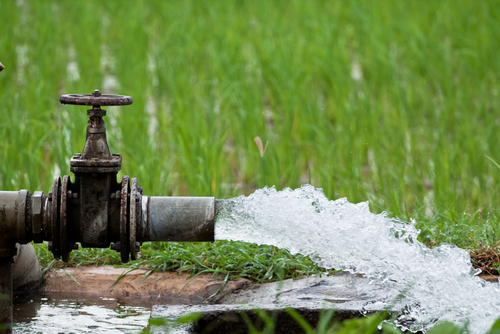Belgium, (Brussels Morning Newspaper) With severe droughts and water scarcity in many regions of the EU, the European Commission is advising member states and players in the agriculture sector to apply the rules on the safe reuse of treated urban wastewater for agricultural irrigation. To this end, the Commission published a series of guidelines to help governments and businesses implement measures to tackle water scarcity.
“Freshwater resources are scarce and increasingly under pressure. In times of unprecedented temperature peaks, we need to stop wasting water and use this resource more efficiently to adapt to the changing climate and ensure the security and sustainability of our agricultural supply,” said Commissioner for the Environment, Fisheries and Oceans Virginijus Sinkevičius.
The guidelines nudge EU countries to practice water reuse for agricultural irrigation to organize general awareness-raising campaigns, which could include promoting the benefits of safe water reuse.
As for technical aspects, all aspects related to risk management, prevention, types of crops and reclaimed water classes, and validation monitoring are expected to be contemplated by the competent authorities.
Water reuse
The Water Reuse legislation, applicable from June 2023, sets out minimum water quality, risk management, and monitoring requirements to ensure safe water reuse. Today’s guidelines shared by the EU executive are complemented by several practical examples to facilitate the application of the rules.
Water reuse can limit abstractions from surface waters and groundwater and promote more efficient management of water resources, through the multiple uses of water within the urban water cycle, in line with the EU’s goals under the European Green Deal.
Both the Circular Economy Action and the new EU Climate Adaptation Strategy, as part of the Green Deal, refer to the wider use of treated wastewater as a way to increase the EU’s ability to respond to the increasing pressures on water resources.
This drive towards more efficient use of water is also reflected in the recent Commission proposal to revise the Industrial Emissions Directive, calling for more efficient use of water across all industrial processes including through water reuse. Moreover, the upcoming Commission’s proposal to revise the Urban Waste Water Treatment Directive will also aim to further facilitate water reuse. The Commission defends that reusing water from urban wastewater treatment plants can become an essential tool to ensure a safe and predictable source of water, whilst lowering the pressure on water bodies and enhancing the EU’s ability to adapt to climate change.



